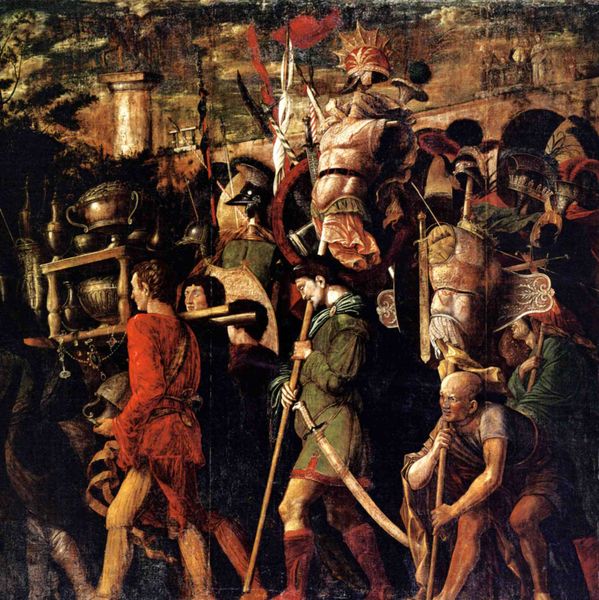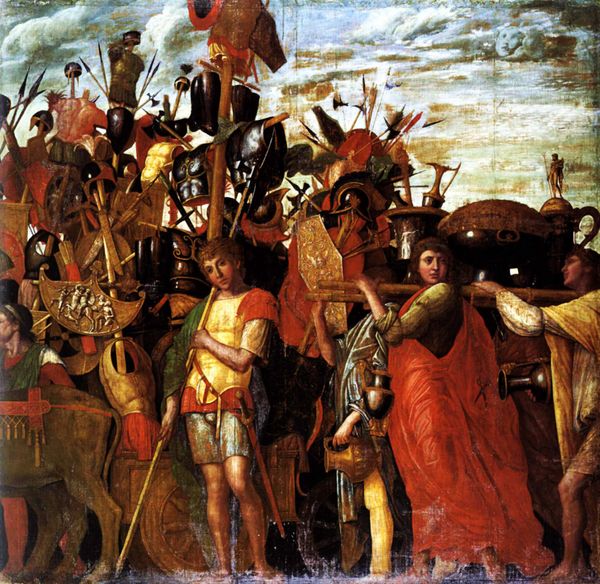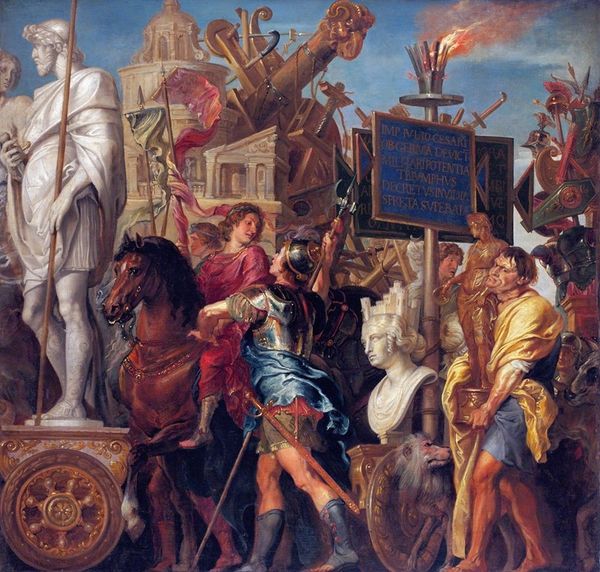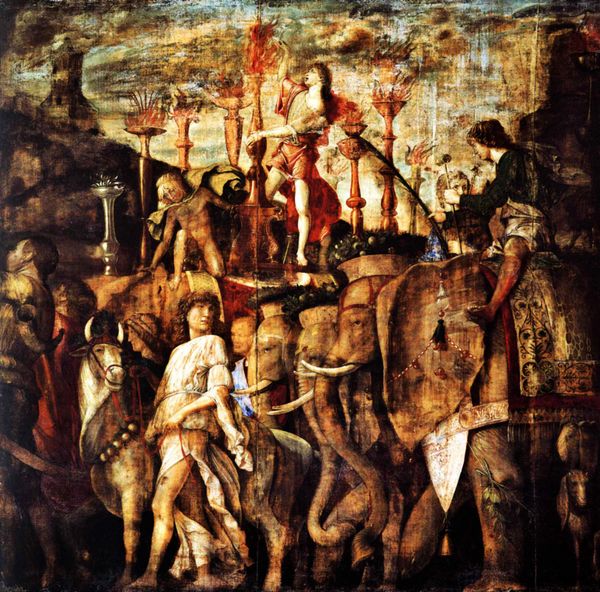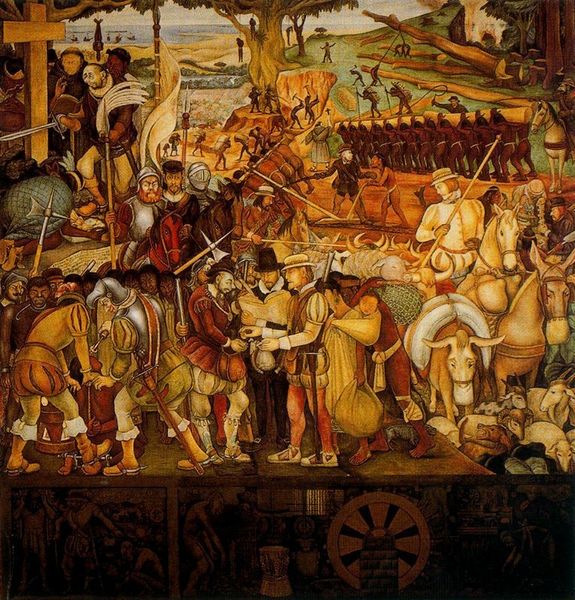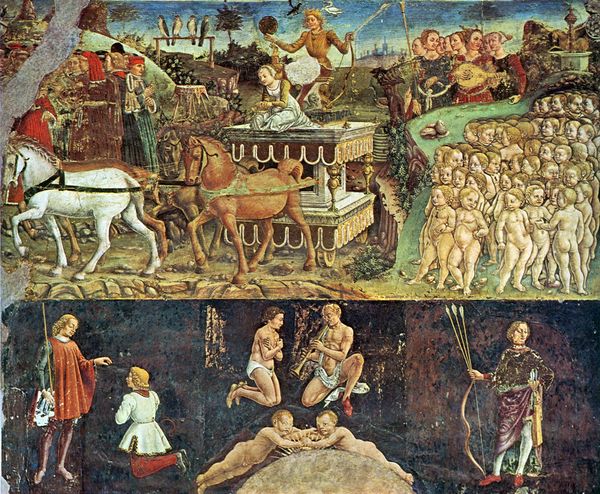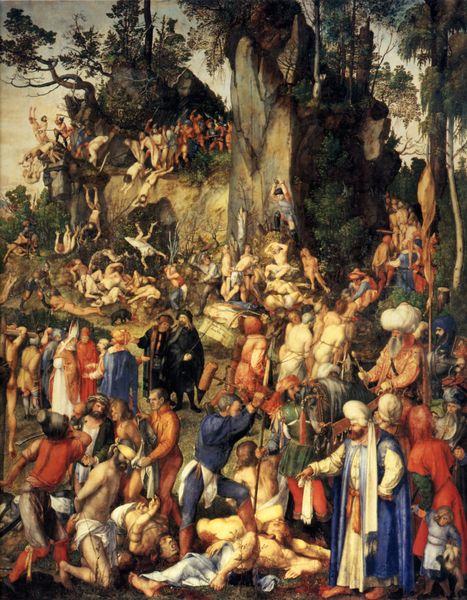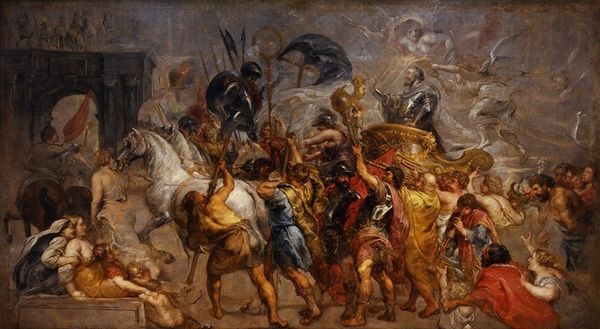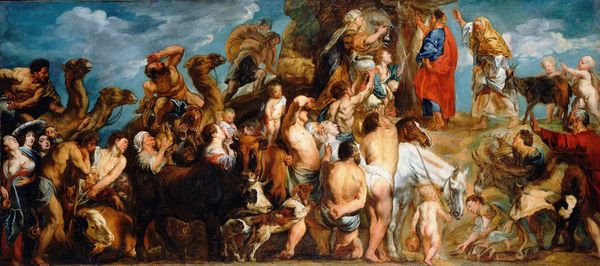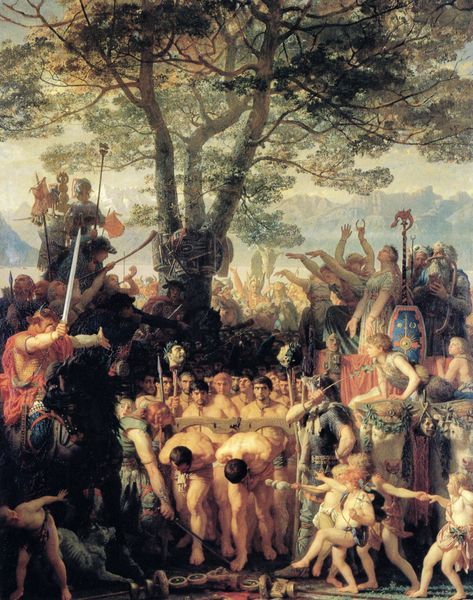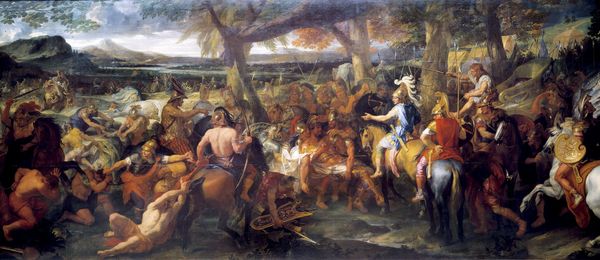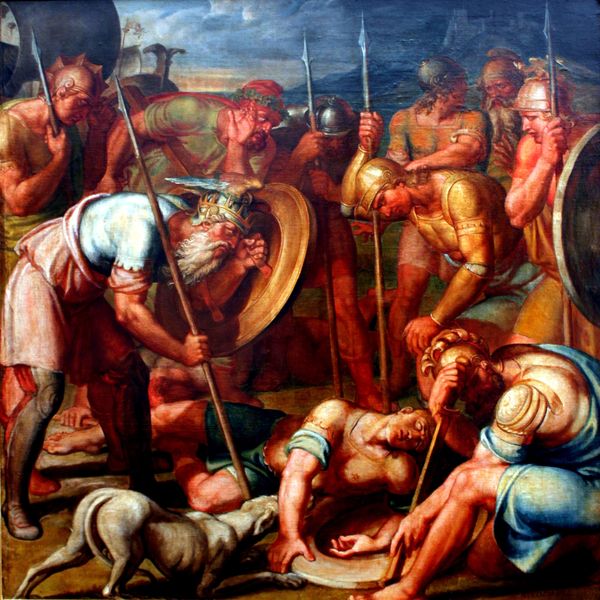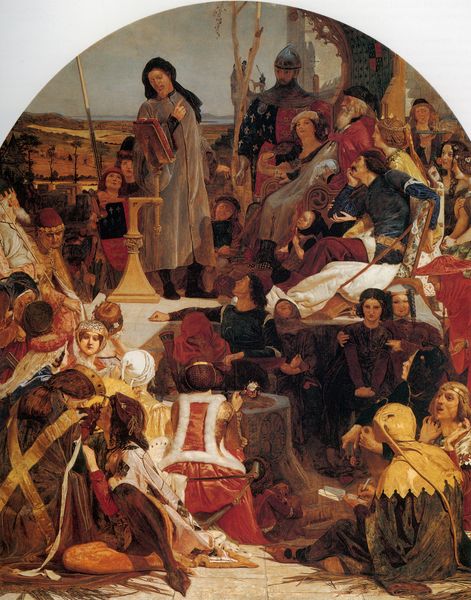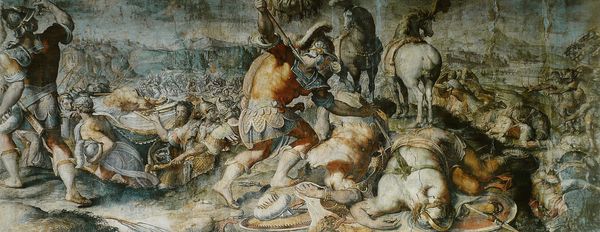
painting, oil-paint
#
portrait
#
narrative-art
#
painting
#
oil-paint
#
classical-realism
#
figuration
#
oil painting
#
famous-people
#
soldier
#
history-painting
#
italian-renaissance
Copyright: Public domain
Andrea Mantegna painted 'Julius Caesar on a triumphal car' during the Italian Renaissance, a period marked by a renewed interest in classical antiquity. Mantegna, working in the court of Mantua, was deeply influenced by ancient Roman art and culture. In this painting, Caesar is represented not just as a military leader, but as a symbol of power and order. The triumphal procession, with its display of spoils and captives, served as a visual reminder of Rome's dominance. Yet, Mantegna’s painting is not just a celebration of power. The inclusion of children, perhaps symbolic of future generations, also speaks to the human cost of war and conquest. These images served as a powerful reminder of the complexities and contradictions inherent in the pursuit of power. How might a contemporary viewing of this painting, in light of current socio-political events, change how it is perceived?
Comments
No comments
Be the first to comment and join the conversation on the ultimate creative platform.
